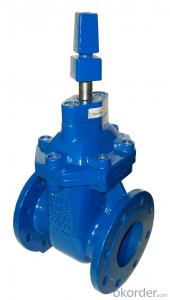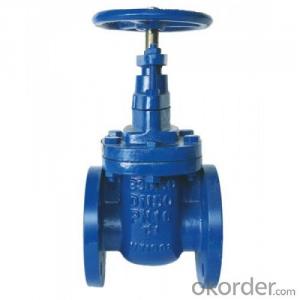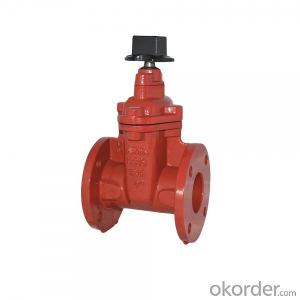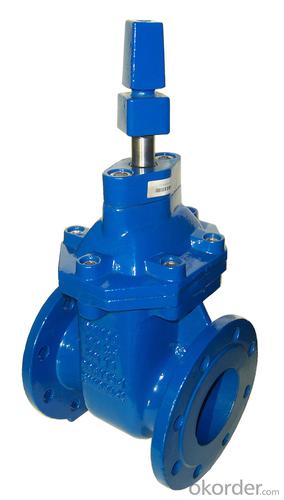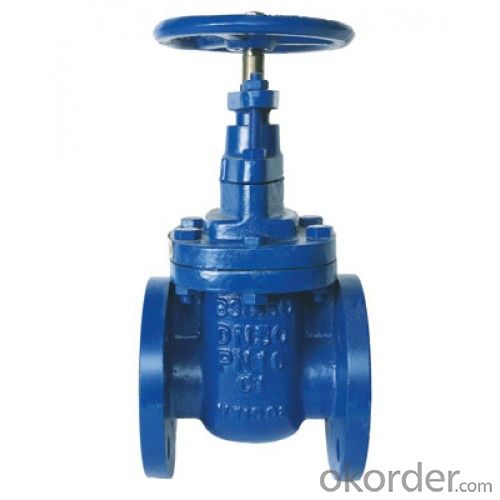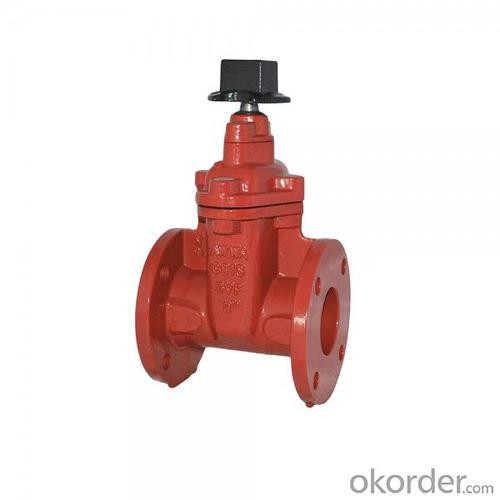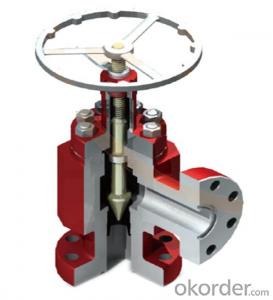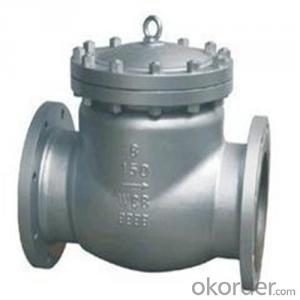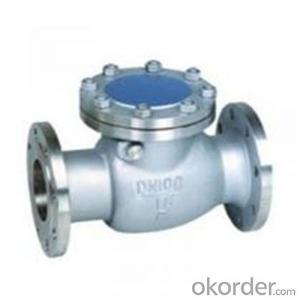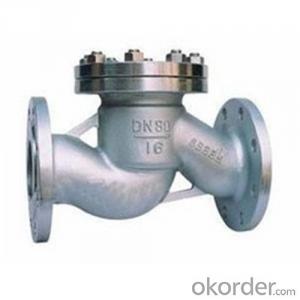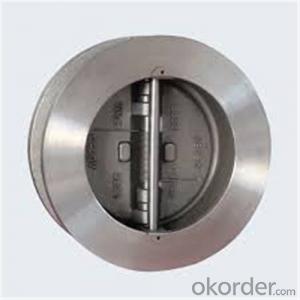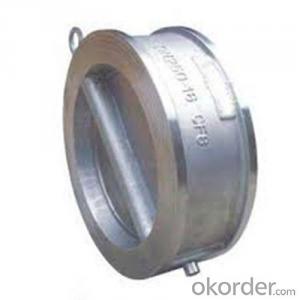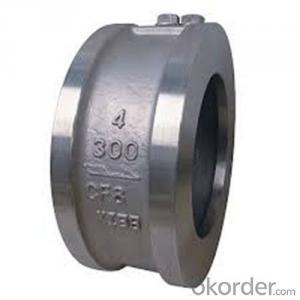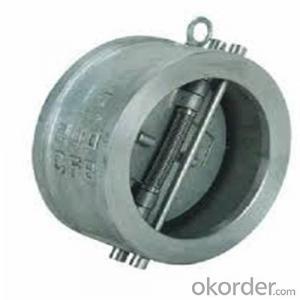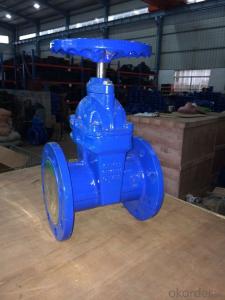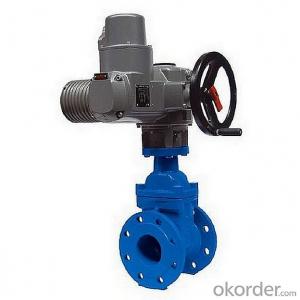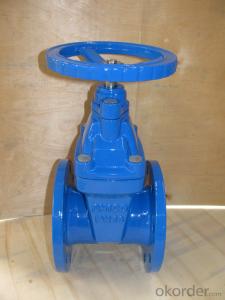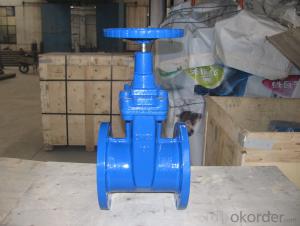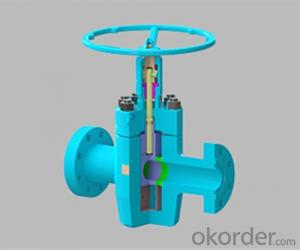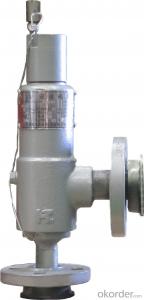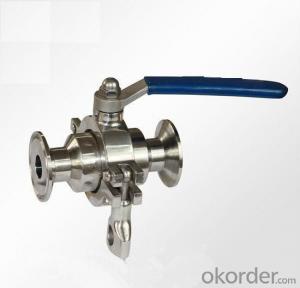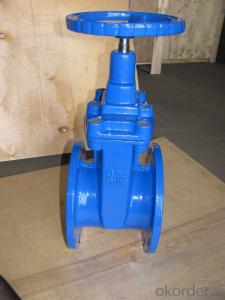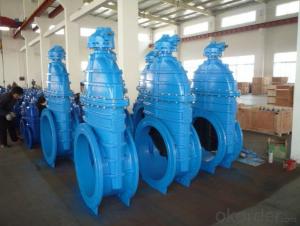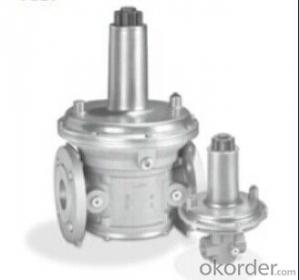Ductile Iron Gate Valve Non-Rising Stem of DIN3352
- Loading Port:
- Tianjin
- Payment Terms:
- TT OR LC
- Min Order Qty:
- 10 unit
- Supply Capability:
- 100000 unit/month
OKorder Service Pledge
OKorder Financial Service
You Might Also Like
Non-rising resilient seated gate valves solve the problem in general gate valves such as leakage, rusting etc. and saves installation space. It is used widely in tap water industry, sewage treatment, shipping construction, petroleum, chemicals, food, pharmacy, textile, electric power, metallurgy and energy system's pipeline to adjust and shut off fluids.
l Replaceable O-ring
l Low torque operation
l Rubber encapsulated wedge
l Clockwise closing direction
l Fusion bonded epoxy coated inside and outside
Specification
Body materials: Ductile Iron
Design standard: DIN3352 F5
Design pressure: PN10/PN16/PN25
Size: DN80mm-DN2000
Connect type: Flanged gate valve
Seal type: Resilient seated gate valve, EPDM+ Ductile Iron
Coating:
Fusion bonded epoxy coated both on the interior as well as the exterior surfaces of the valve, flange surfaces are also fully epoxy coated, blue color.
Application
Potable water, neutral liquids, irrigation, heating and chilled water, fire systems etc, in either above ground or buried service applications and requires minimal maintenance
Feature
This Ductile Iron Resilient Seated Gate Valve is fully compliant to DIN3352 F4. We have light weight type, heavy weight type and even middle weight type for your reference, and these three options design construction of ductile iron will offer a robust and durable extended life performance.
1- Bolted bonnet, full bore: used for larger valves and higher pressure applications.
2- Stem sealed with O-rings: realize zero leakage, could be replace under full pressure.
3- Rubber encapsulated wedge: excellent elastic memory, ensure sealing effect.
4- Blue fusion boned epoxy coated inside and outside: suitable for portable water.
5- Working pressure from -1 to +16 and working temperature from -10 to +80°C
Durable
This valve is suitable for use in a wide range of applications including potable water, neutral liquids, irrigation, heating and chilled water, fire systems etc, in either above ground or buried service applications and requires minimal maintenance. This Resilient Seated Gate Valves have a rated working pressure of 16 Bar. The valves seal 100% leak tight. The waterway is clear, unobstructed and free from pockets. Resilient seated gate valves are fusion bonded epoxy coated both on the interior as well as the exterior surfaces of the valve, flange surfaces are also fully epoxy coated.
Advantage
1- OEM Factory : Professional manufacturer, clients from whole world.
2- High Quality, Competitive Price: Custom is accepted.
3- Complete Service: Long service Life, Fast delivery, Multilingual services.
4- Certificates: ISO9001, CE, NSF, TS, WRAS.
5- Low MOQ: Ready for providing the sample and producing some small orders.
FAQ
Q: Are you manufacturer of trading company? Which kind of valves do you supply?
A: We are a professional manufacturer of butterfly valves, check valve, non-return valves, gate valves, Y-strainer and so on.
Q: Will you do inspection before shipment? Whether Third Party Inspection is available?
A: We have a professional engineer team, so we can offer you the most professional technical support. All valves are tested twice before and after hammer pin to ensure its perfect sealing property and to make sure every valve is ok before ex-factory. TPI is ok but the clients should bear all fees.
Q: What kind of package do you use for these valves?
A: Valves from DN80-DN1400 will be packed in wooden boxes, but valves above DN1400 will be in wooden pallets. If you need wooden boxes for above DN1400, the price may be more expensive.
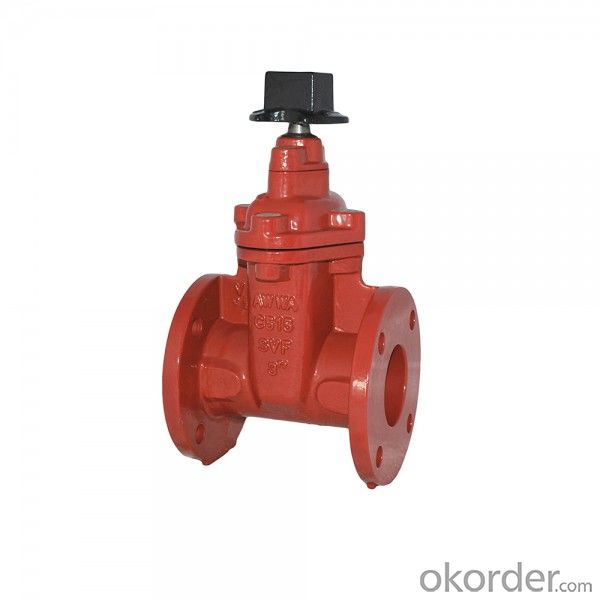
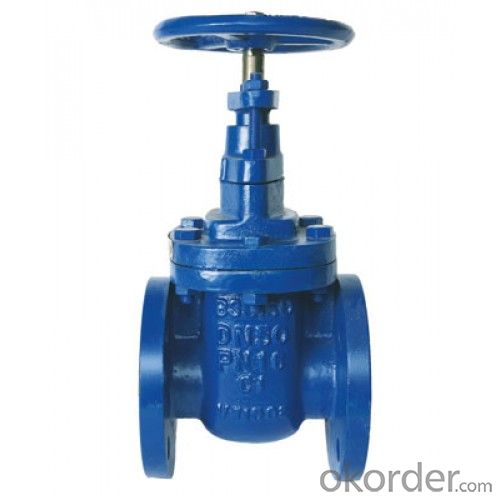
- Q: I couldn't get a name off the valve as it sits. It has a leak on the top plate and i'd like to replace the valve plate as opposed to cutting the whole thing out and replacing.
- i have seen many types of valves on an everyday basis. and i havent even seen one like this. its most likely a cheaper knock off brand valve. you have enough room to replumb a new one in quite easily. if you do not have enough room right before the valve to just cut it out, cut the pipe on the other side and unthread the valve from the threaded fitting. then buy some fittings and pipe and replumb it. you have a lot of room to work on it. i doubt you will find the same valve to part it out with. use either a Hunter valve or a rainbird valve avoid toros, orbits, weathermatic, and lawn genie parts. good luck and just take your time.
- Q: Hi,I have just bought a Northface Hammerhead and for some reason when biting on the bite valve no water is being released. Does anyone have any idea why this might be, or can tell that I am missing something obvious. Thanks very very much.
- you have to suck on it. i know that how i worded that it sounds perverted, but that not how it was intended.
- Q: Or could you put a blow off valve on a supercharger?
- This Site Might Help You. RE: Do superchargers make the same sound as a turbo with a blow off valve? Or could you put a blow off valve on a supercharger?
- Q: i have seen the wrting M/T on some valve covers and was wondering what that meant
- It stands for the manufacturer; Mickey Thompson
- Q: if i put a power valve on my honda xlr 125 would it make my bike have faster acceleration
- Does not apply to 4 stroke motors.
- Q: why can't i just use solenoid valves hooked to a small bank of relays(using relay logic to control operation) connected to thermostats to control a multi zone boiler system? it would work, but can i do it, why must i use expensive zone valves?
- Its just an educated guess but I would say it would cause system shock if a valve just snapped shut as against closing gently. Assuming the system was shutting down as a zone valve shuts the control switch opens and turns off the plant whilst the valve is still partly open. With a solenoid unless you fit a timer to pre shut off the plant then shut off the solenoid you would probably cause some plant damage. Also by the time you have wired all that lot up you may as well do the job with a zone valve.
- Q: I'm picking up euphonium (brass instrument) after a 5 year hiatus. Can I still use my old valve oil and slide grease (Trombotine)?
- okorder /
- Q: i am hearing tapping on top under of vale cover sound like valve need adjusting
- time to change oil, use thicker oil or yep, adjust valves. not a monstrous project but time consuming. Need torque wrench, valve cover gasket and shim kit to adjust. It's a pain as u have two nuts on each valve adjustment rocker bolt. tightening causes the lower one to drop sometimes so u may find yourself adjusting the valves 2-3 times each. I did it on my old Acura with 78K miles. ran smoother. i dropped in a pulley kit and cold intake as well but afterwards. the head was real clean as I change oil regularly. I had tapping even after changing the knock valve so I knew the valve job was needed.
- Q: My third valve won't move at all. I haven't played my trumpet in a while and I tried to oil it to get it to unstick but it still won't move at all. People say to screw it off but I can only unscrew the little cap at the bottom of the valve where you push in, not the white button at the top. Help please! Thank you so much! =]
- i got here across that Dennis Wick valve oil is a procedures more advantageous ideal to any that I easily have used. you'll locate it on Amazon. If cleansing with dish cleansing soap and heat water would not artwork, alongside with the Dennis Wick oil, I recommend that you're taking it to a restoration shop. be careful at the same time as cleansing now to not get any cork or felt moist. only dip the truly valve section into the water.
- Q: My furnace cut out about a year ago. The hvac guy i used told me the gas valve was no good and that the flu was partially blocked. I cleaned out the flu, he replaced the gas valve ($700+) and it worked great for a year. Today the furnace does not fire up. Pilot is working. I cleaned out the flu (there was definitely quite a bit of debris, so that was probably the cause for the shut off) .... The flu is now clear, but when i turn the system back on the thermostat calls for heat, but there is no gas flow to the burner... could the valve have failed that quick, or should i be looking at something else like the CO sensor or something... just looking for some direction before shelling out another 700 bucks... Thanks in advance for any ideas or assistance....
- I was wondering why the flue is clogged? I've never had to clean mine. Well anyway, I use a shop vac to vacuum out any dust or rust that accumulates on the gas valve on the rare occasions it failed to work,and that fixed it every time.
Send your message to us
Ductile Iron Gate Valve Non-Rising Stem of DIN3352
- Loading Port:
- Tianjin
- Payment Terms:
- TT OR LC
- Min Order Qty:
- 10 unit
- Supply Capability:
- 100000 unit/month
OKorder Service Pledge
OKorder Financial Service
Similar products
Hot products
Hot Searches
Related keywords
